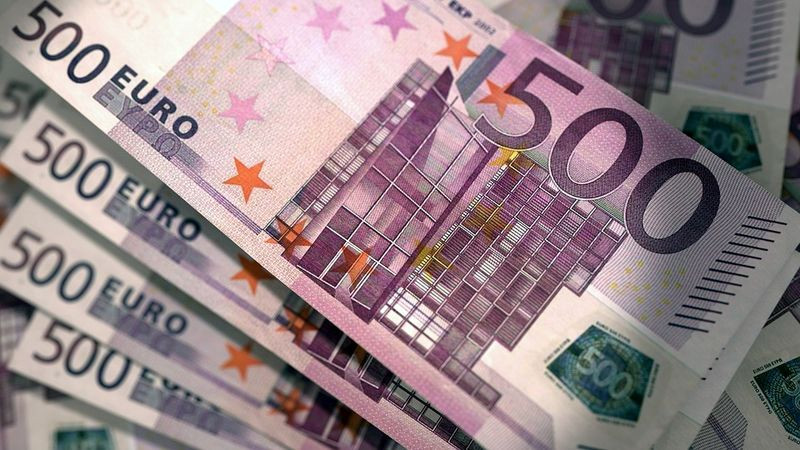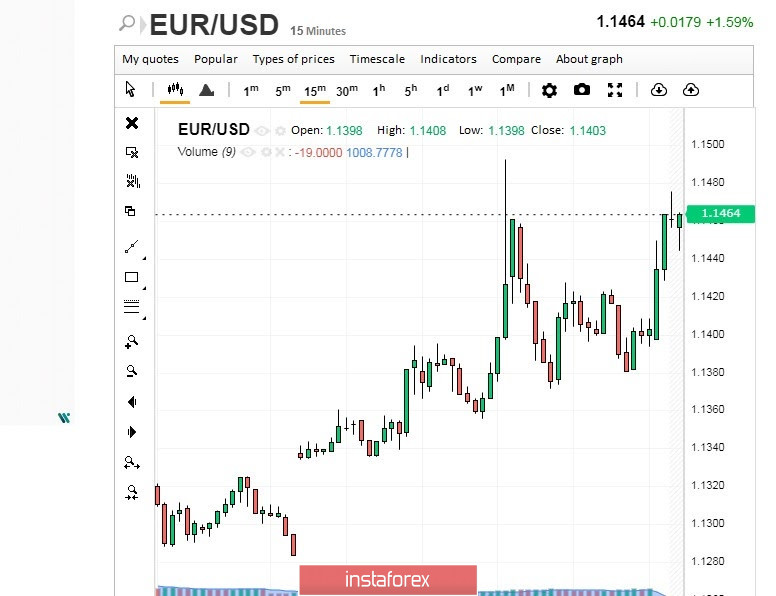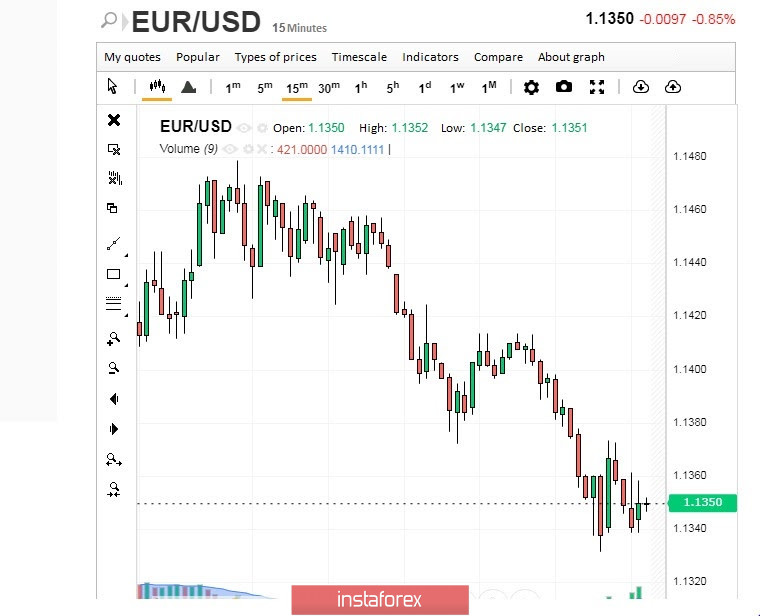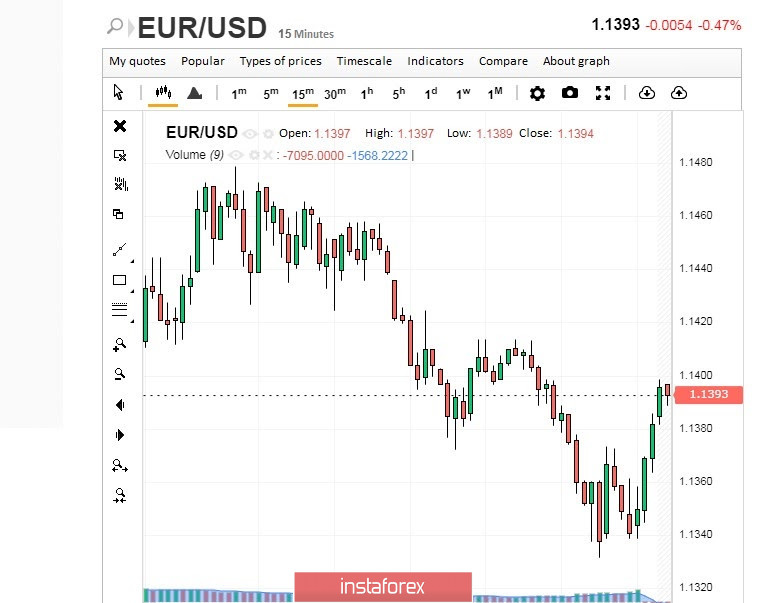
The European currency is not going through the best of times, but it is trying not only to stay afloat but also to compete with the dollar. At the same time, according to analysts, further growth of the euro is unlikely, since the main thing now is to maintain its gained position without losing its previous enthusiasm.
The consolidation of the European currency against the US dollar occurred amid speculations that the ECB could leave interest rates unchanged. On Thursday, January 12, a meeting of the regulator will take place, at which the key rate is expected to decrease by 10 basis points (bp), while the deposit rate can be left at -0.50%. If the key rate remains unchanged, the ECB is ready to provide funds to support small and medium-sized businesses, as well as change the terms of the asset purchase program.
The euro was also supported by positive data on the growth of industrial production in Germany, although many experts are sure that this is not a guarantee against a recession. According to information provided by the Federal Statistical Office of Germany, Destatis, in January 2020, Germany recorded a sharp increase in industrial production. Current data turned out to be much more positive than economists' forecasts. According to Destatis, the total industrial production in Germany increased by 3% compared to December 2019, while the forecast assumed an increase of only 1.8%. According to analysts, compared to January-2019, industrial production in Germany fell by 1.3%.
However, despite this positive data, experts urge not to rest on their laurels, since the revival of the manufacturing sector in Germany may be temporary. Analysts argue that this trend is unlikely to continue in March 2020. Destatis also draws attention to the report on the balance of foreign trade, which was not too positive. According to the agency, in January of this year, German exports remained the same, although an increase of 0.9% was expected. The trade surplus of Germany reached 18.5 billion euros, while economists were counting on 18 billion euros.
The current situation is shaking the position of the European currency, experts are sure. Such short euphoria for the euro, which has risen sharply on positive data, could quickly fade away. At the same time, markets expect a recession in Europe and the United States in the first half of 2020. In the event of a recession in Germany, its negative impact may be more powerful than expected.
In connection with the total spread of the coronavirus COVID-19, the German authorities decided to support a number of major companies that could suffer from the negative consequences of the epidemic. However, many experts are confident that such short-term support will not have the desired effect and will only slightly alleviate the economic shock from the coronavirus.
Currently, the global economy is between a stupor and a shock due to the powerful impact of COVID-19, paralyzing markets. The current recession could not but affect the European economy, whose GDP growth stalled and collapsed to the lowest level in the last 7 years. In the fourth quarter of 2019, the eurozone economy was on the verge of stagnation, and the spread of coronavirus added fuel to the fire.
According to experts of the largest PIMCO fund, in the first half of 2020 amid falling demand due to COVID-19, the likelihood of a recession in the United States and the EU has increased significantly. The situation is aggravated by the rapid decline in Chinese demand for European goods, particularly products from Germany, as well as a decrease in European demand for goods from China. Experts do not rule out significant disruptions in German supply chains due to a halt in production in the Celestial Empire, as well as weakening demand in other export markets affected by the coronavirus. Experts said that this is capable of delivering not only a sensitive blow to the growth of the eurozone economy but also destroying it.
In this situation, the European currency may be under pressure, although at the beginning of this week it remains in a good position. On Monday, March 9, the euro was able to enter the upward spiral, gaining about 70 points. Last Friday, March 6, the EUR / USD pair managed to score only 40 points. Analysts are paying attention to the rampant growth of the tandem, which is quite difficult to stop.
Experts are unanimous in their opinion that the cause of such a sharp rise in EUR / USD quotes is the coronavirus COVID-2019 and not the fundamental or technical data. Analysts find it difficult to answer how long the new wave of the upward trend of the EUR / USD pair will last. On Monday, it was trading near 1.1463–1.1464 and then slipped to lower values.
 'Morning of March 10, the EUR / USD pair began from 1.1350, to which it sank during yesterday's trading session.
'Morning of March 10, the EUR / USD pair began from 1.1350, to which it sank during yesterday's trading session.

Subsequently, the tandem again found itself in an upward spiral, plying around levels 1.1391–1.1393. Experts believe that the euro will have the strength to stay near current values.

Currently, the global economy is starting to slow down, and the economies of the EU and other countries are on the verge of a recession, experts are sure. In this situation, even the American currency is difficult to maintain equilibrium, although many investors prefer to run to the dollar, seeing it as a protective asset. According to analysts, the Chinese coronavirus is becoming the cause of full-scale quarantines in a number of countries, which brings down business activity and financial markets. Experts recommend monitoring the actions of central banks and monetary authorities struggling with the negative effects of coronavirus.





















